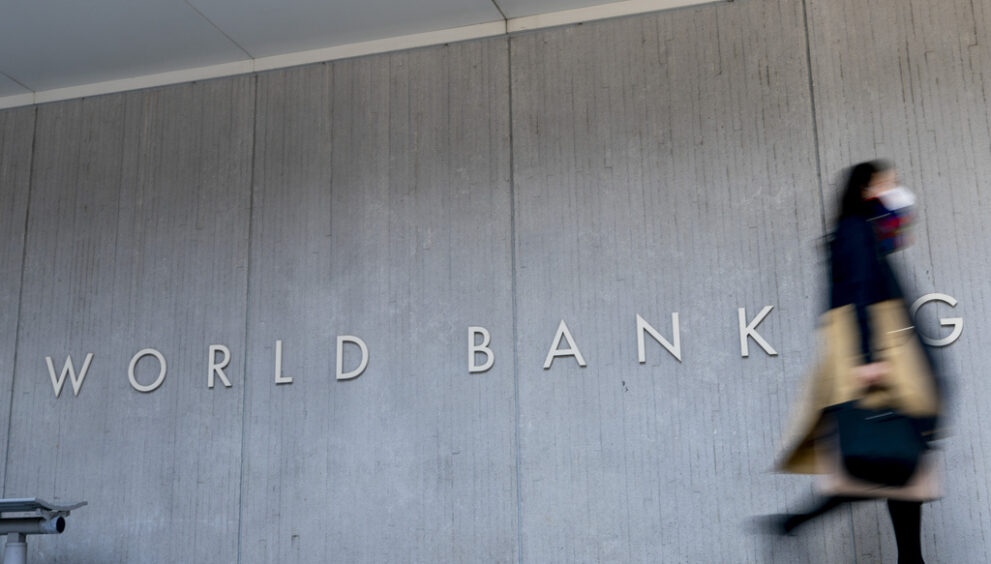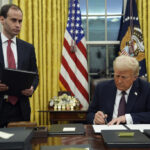Consequences of Project 2025’s World Bank Proposal for the United States

The proposal put forth by Project 2025 advocating for the withdrawal of the United States from the World Bank could result in a significant advantage for America’s rivals. Although the plan correctly identifies the inefficiencies within the bank, implementing it would have severe repercussions on U.S. interests.
Having transitioned from a leadership role within the World Bank to corporate affairs in the private sector, I can confirm the urgent need for reform within the institution. However, completely abandoning it would be a detrimental strategic mistake.
Despite its flaws, the World Bank remains one of America’s most influential assets in leading global development initiatives. Throughout my experience spearheading health reforms in various countries such as Armenia and Romania, I witnessed firsthand how the bank’s expertise and ability to mobilize resources played a crucial role in achieving developmental goals and advancing American interests. In many instances, countries opted to work with the World Bank due to its capacity to deploy resources and expertise on a large scale.
While Project 2025’s critique of the World Bank is valid, it is essential to note that the institution’s operational model is in need of modernization. Drawing from my background in the private sector, there are three market-oriented reforms that could significantly enhance the effectiveness of the World Bank while also upholding American leadership.
Firstly, there should be a transformation in the workforce strategy. Unlike private sector organizations that embrace flexible staffing arrangements based on evolving needs, the World Bank continues to uphold lifelong tenure for most positions. This rigidity leads to resource wastage and stifles innovation. The bank should adopt staffing models akin to those in the private sector that emphasize impact over job security while retaining essential institutional knowledge.
Secondly, there should be a systematic segmentation of markets. The current approach of defining priorities on a country-by-country basis is inefficient and often influenced by politics. Instead, the bank should develop a comprehensive market segmentation strategy, similar to that used by private companies, to determine where and how to allocate resources strategically. This would deter the impractical attempt to implement initiatives everywhere and enable more prudent resource allocation.
Thirdly, there should be a rationalization of the development finance sector. The existence of multiple agencies offering similar services with varying terms leads to inefficiency and allows borrowers to exploit the system. The U.S. should take the lead in coordinating development partners and establishing clear divisions of labor, following the example of strategic alliances formed by private sector entities to maximize impact.
Critics may argue that these reforms are challenging to implement in a multilateral institution. However, the alternative of U.S. withdrawal would result in a dangerous vacuum. China, with initiatives like the Asian Infrastructure Investment Bank and the Belt and Road Initiative, is prepared to step in and fill any void left by America’s retreat. The resulting loss of U.S. influence would outweigh any short-term cost savings from withdrawal.
The current administration, deliberating on World Bank funding, should leverage America’s position as the bank’s largest shareholder to drive these reforms. By modernizing the World Bank instead of abandoning it, the U.S. can uphold its global leadership while ensuring that development funds have the greatest impact possible.
While the World Bank is not flawless, it remains a crucial instrument of America’s soft power and global development. The solution lies in transforming it rather than dismantling it. In an era of increasing great power competition, this approach is not only sound development policy but also shrewd foreign policy.
Dr. Adanna Chukwuma is a physician and development strategist with leadership experience in the World Bank and Fortune 500 companies. She holds degrees from Oxford and Harvard Universities and is a fellow of the OpEd Project.






















































































































































































































































































































































































































































































































































































































































































































































































































































































































































































































































































































































































































































































































































































































































































































































































































































































































































































































































































































































































































































































































































































































































































































































































































































































































































































































































































































































